Igor Ljubuncic
on 2 May 2019
Switch life mode to FUN with some cool Linux games
If you think of the Internet as a big flat disk balancing precariously on the shoulders of titans, one of those titans happens to be gaming. People use their computing devices for a range of tasks, but playing games, solo or online, with friends or against friends, is a universal activity that crosses countries, cultures, and age groups.
This put Linux in a somewhat delicate position, because the availability of cool, high-quality games used to be a clincher, keeping people on the other side of the Great Arcade Divide. But recently, there have been more and more fun, engaging titles available to Linux folks, from brand new games to all-time classics. How about we review some of them?
Live For Speed
Racing. You think you’ve got it? Live for Speed (LFS) is just the thing to test your pedal-to-the-metal mettle. This serious, realistic racing simulator offers accurate physics and no-compromise driving experience to the entrepreneuring Hakkinen lurking among us. You can practice and hot-lap in single-player mode or go online and race against other humans.
LFS lets you purchase three levels of licences – S1 through S3, which offer different vehicles and tracks. Originally developed in 2003, this game is no slouch, graphics or quality wise, with the latest update released in 2015.
Driving well in LFS is no easy task, and you’re best of with a steering wheel kit so you can heel-and-toe through corners or drift, should your heart desire such wasteful application of traction. You need to take into consideration things like tyre temperature, tyre wear, wind and rain. You will get a penalty if you speed through the pit lane. The game goes as far as simulating tyre flexing and collision damage, even small things, so if you scrape the chassis against walls or barriers, you may suffer from increased drag and steering imbalance. If you’re not careful enough, you can burn out your clutch.
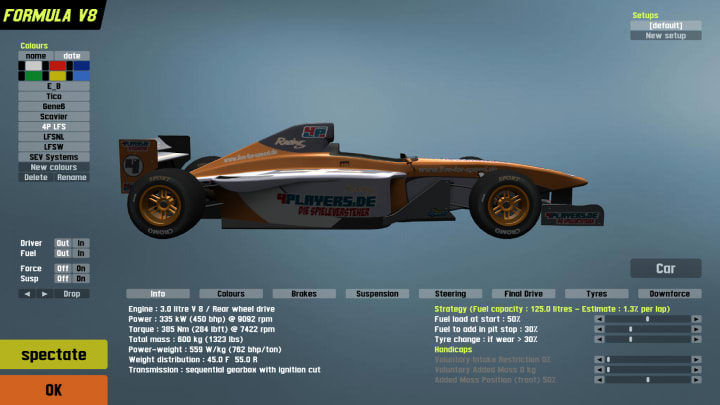
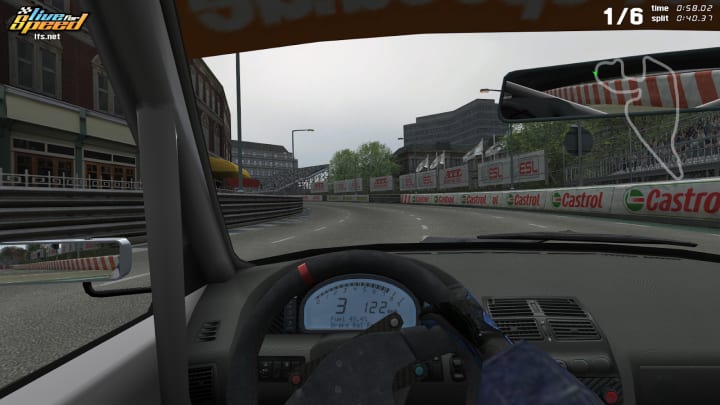
You also have the option to replay every race, with multiple camera angles available, so you can check your lines and work on improving them. There are third-party software plugins available that can help you further hone your driving skills. If you’re into fast yet responsible driving, LFS will keep you entertained for many an hour.
Urban Terror
Spending time in a stressful environment like an IT office (or open space) can be tolling, which is why healthy, frequent meditation is a good way of cleansing the cerebral pathways. First-person shooters may not be everyone’s idea of relaxation, but they form an immensely popular genre of gaming. Urban Terror is a fast-paced, fun shooter, with quirky graphics and even quirkier physics, including wall jumps (a blend of Parkour and Kapuera, Quake-style), bunnyhopping and knife throwing.

Like most titles of this type, it offers a variety of modes, including Capture-the-Flag, Deathmatch, Last Man Standing, and others. You have a range of primary and secondary weapons to choose from, as well as protective gear, but you do need to balance the two, which makes for an interesting asymmetry, adding an extra dose of unpredictability into the equation. Nostalgia plays a part, too, and you will see many Quake-era levels available. Like LFS, this is not a new game, but it has some of the same, timeless charm.
Command & Conquer: Red Alert
Nothing speaks timeless more than the 1996 real-time strategy classic. The premise of the game was simple: The Cold War in an alternate history reality. But out of this simplicity rose one of the most gripping and popular RTS titles of all time. You harvest ore to get funds, which you then use to build and expand your base, and train units until you have sufficient forces to defeat the other party. The Allies and the Soviet factions had vastly different technologies and weapons so parity and supremacy came from cunning and correct utilization of available assets rather than formulaic mouse clicks.
Almost 25 years later, the idea and the execution remain unmatched. You have crates scattered all over the map, which let you get extra perks and funds. You can demolish bridges to deny enemy movement. The Allies have cheaper and weaker vehicles, but they can build them more quickly. The Soviets have bigger tanks and stronger defensive weapons, but they take longer in the build queue, and are usually costlier. You have radar, air assets, command units, and spies – and then dogs to detect spies, of course.
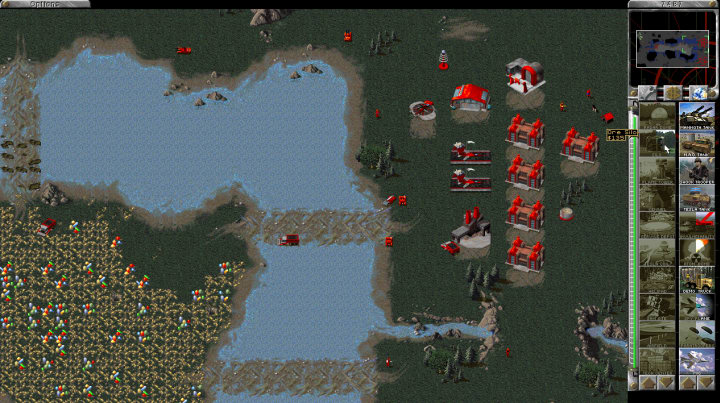
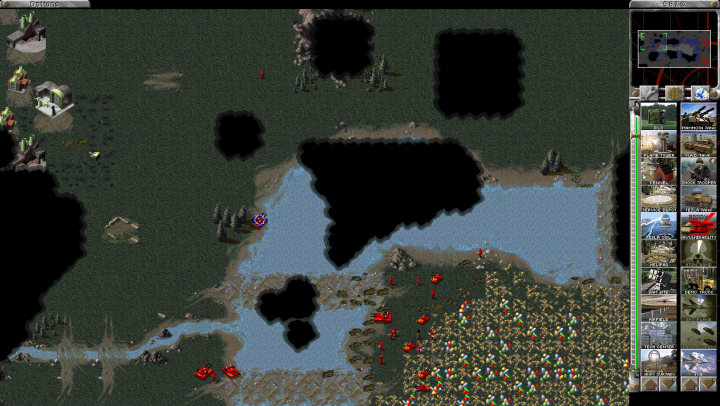
You can play against the computer, or thanks to the more recent development and tweaks added in recent years, you can also play online against humans on the modern Internet infrastructure. Be warned though. This game will eat all your free time!
Ascii Patrol
Away from shiny colors and fancy graphics, Ascii Patrol gives you a nerve-biting terminal window experience. In a horizontally scrolling action sequence, you drive a moon rover over a rocky surface replete with hazards, like craters, rocks, things that I can only best describe as very aggressive bouquets of deadly lunar flowers, and of course, spaceships raining fire from above.
The idea is to boldly go where no one has gone before (kind of), jump over obstacles, and shoot back at whatever’s trying to end your gaming session. Sometimes, simplicity breeds felicity that goes beyond elaborate game plot stories, the number of shaders, or how much heat your machine can handle before it has to throttle down. Ascii Patrol is 80s family-friendly retro-arcade that will test your finger reflexes to the max.

Lone Wolf
Depending on how old you are, you may remember a few choose-your-own-destiny games from the old times. There was Douglas Adams’ The Hitchhiker’s Guide to the Galaxy and Leisure Suit Larry. And then, there was the Lone Wolf role-playing series of books. At various points in the reading, you’d be given a choice, and based on it, you’d skip pages to the next sequence, choosing your own story, your own destiny.
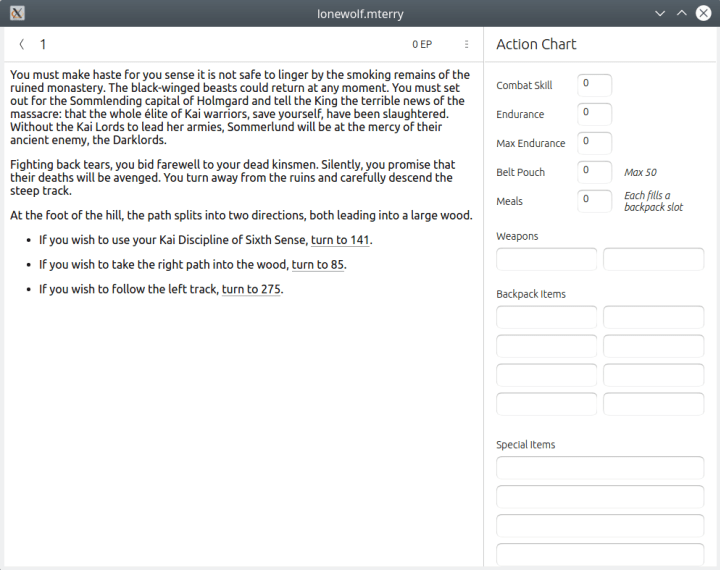
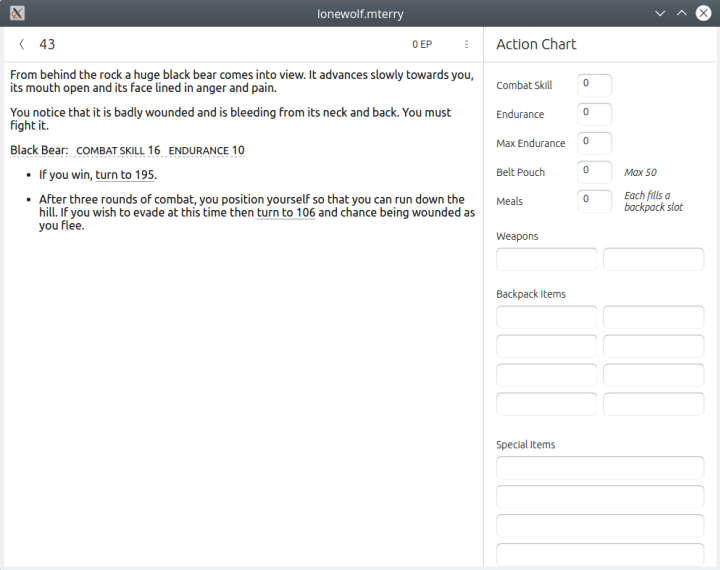
Now, you can do this on your Linux desktop, too. You play as the last of the Kai, and the book adventure takes you on a path of vengeance against the Darklords. Along the way, you will gain skills, gather weapons and magical artifacts, and encounter other characters, and each time, you’ll have to toss the dice, figuratively and literally. If you like the classic fantasy genre, or would like to get hooked into reading, this is a great and fun way to start.
TrackMania Nations Forever
While Live For Speed is all about physics and realism, TrackMania is exactly the opposite. It’s an arcade racer through and through, designed to be silly, fun and fast. You get quirky obstacle-course tracks, with loops, traps, ramps, and speed boosters. You can play on your own or pit your finger reflexes against other players online. If you’re into single player, you can hone your skills on several tracks with increasing levels of difficulty. You will need to win at least a bronze medal to gain access to new tracks. Easier said than done, as some of the tracks will really test your patience and determination.

Despite the basic premise and relatively unassuming graphics, TMNF has an uncanny level of addictiveness to it, making you try, again and again, despite your better judgment and everyday life’s shifting priorities.
Summary
This small collection will hopefully whet your appetite for Linux gaming. It’s got a little bit of everything – adventure, racing, strategy, FPS, and arcade, enough to keep you busy for a while. And the list by no means ends there.
If you have any recommendations, please join our forum for a heated discussion. Because when it comes to computer games, the emotion needle is sure going to spike.



